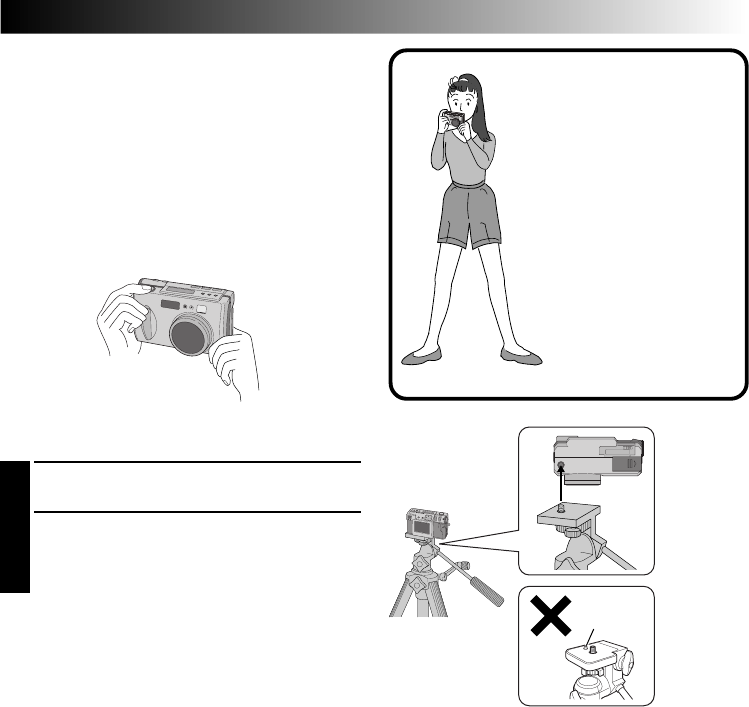
EN 25
Good Photography Posture
With your left hand firmly supporting the camera to
the left of and below the lens, support the camera
body with your right hand.
Next, look for your subject and determine the
camera position.
You can change the angle of the subject and the
background by changing the direction in which you
point the camera.
You then frame the shot by using the zoom
function, etc., to enlarge or reduce the subject to
the desired size within the shot.
Use your left hand to hold
the camera also.
Hold your arms firmly
against your body.
Spread your legs apart
slightly and adopt a firm
stance.
Using a Tripod
We recommend use of a tripod in the circumstances described below in order to avoid problems caused by
shaky hands.
We especially recommend the use of a tripod when using pixel shift mode, wide range mode, or noise
reduction mode.
• Low shots
Because it is difficult to assume a steady posture for a low shot, the shot will frequently be on a slant or
blurred by shaky hands.
• Dark locations
When shooting in a location that prohibits the use of a flash (such as in a museum), the shutter speed is
reduced, which increases the likelihood of problems caused by shaky hands.
• Shooting a distant object through the telephoto feature
Because the telephoto feature makes a small, distant space appear larger, even the slightest movement of
the camera can cause blurring.
• Shooting an extreme closeup
Because a nearby object appears very large when shot in a closeup, the slightest movement in your body
or hand can result in a blurred image.
Mounting the Camera on a Tripod
1
Align the screw hole on the bottom of the
camera with the screw on the tripod.
2
Turn the screw on the tripod to secure the
camera in place.
•Adjust the screw and the length of the legs so
that the camera does not wobble at all.
NOTE:
●
Use only tripods not equipped with a stud that
prevents the camera from rotating.
Stud


















